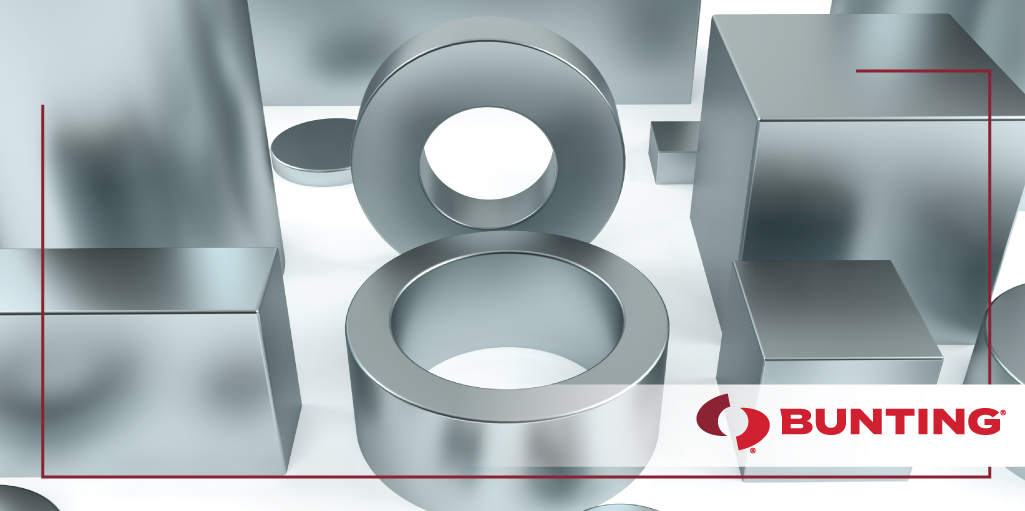When working with neodymium magnets, you will quickly discover that nearly every neodymium magnet will be plated or coated. Neodymium magnets are the most powerful magnets available, and are used in many different applications. However, they possess physical characteristics that require them to be plated or coated in order to protect them from damage. In their raw form, neodymium magnets are quite brittle, and as a result are prone to chipping, breakage, and other types of physical damage. As another concern, neodymium magnets (which are 65% iron by weight content) are highly vulnerable to corrosion, and prone to experiencing erosion and decay if not properly coated. Fortunately, there are many coating options available for neodymium magnets that protect damage and corrosion from occurring.
The type of plating or coating used on a neodymium magnet is determined based on the application and environment the magnet will be used in. One of the most common options is nickel plating–a three-layer plating that combines a nickel layer, a copper layer, and a nickel coating. Nickel options are typically best suited for indoor use, offer excellent abrasion resistance, and are a highly cost-efficient choice. Other nickel-plating options incorporate layers of copper, nickel, gold, and chrome. For those who desire a non-nickel metal plating, zinc is available as well.
There are various types of non-metal coatings available for neodymium magnets, including Teflon/PTFE coatings, plastic coatings, rubber coatings, and epoxy resin coatings. These coatings are often designed for use in specific applications, and some require specialty manufacturing. Bunting-DuBois is equipped with the expertise to create many specialized magnets. For example, our injection molding capabilities allow us to create magnets fully encapsulated in highly corrosion resistant coatings such as plastic and Teflon.
When selecting the plating or coating for neodymium magnets, there are several factors to take into consideration.
Reviewing the application the magnet will be used in, it is important to assess the environment the magnet will be used in, how well the plating or coating resists abrasion, how the plating or coating interacts with glue, the thickness of the plating or coating, and how well the coating protects against corrosion and wear that can be caused by environmental factors such as humidity, water, salty air, and salt water. As with any purchase, the price and cost efficiency of the coating must be considered as well.
At Bunting-DuBois, our expert team will work with you every step of the way to determine the optimum magnet or magnetic assembly for use in your application. Our extensive manufacturing capabilities, including the ability to make injection molded and compression bonded magnets, allow us to meet all of your expectations and requirements. For more information, contact us today.

